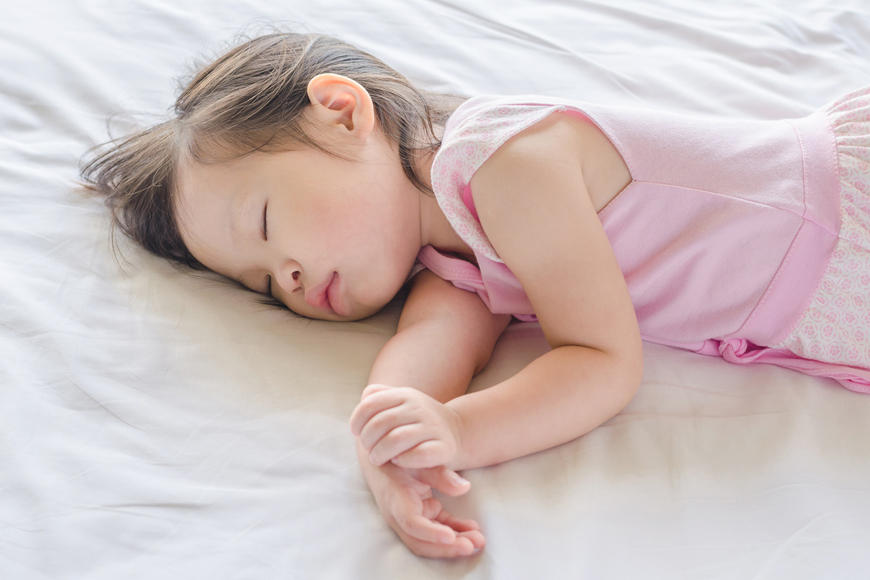Expert Advice On Your Baby's Sleeping Habits
Discover tips from The Essential Baby Care Guide's care and development program
5 March 2013
Editor

With the Essential Baby Care Guide, parents can gain expert advice and insider tips that can help make the journey of parenting that little bit easier. In the sleeping program, the guide's sleep expert Mandy Gurney shows you how to teach your baby to sleep in their vital first 12 months.
You'll learn all about things like:
How to Discourage Standing in Their Cot
Sleep Expert, Mandy Gurney gives advice on what to do if your baby or child is standing in their cot but can't or doesn't want to lie down again.
In the first year one of the biggest changes is the amount of mobility that children have. Around the age of about nine months, this is when babies are really learning how to stand up. Often they use the bars of their cot as a great tool to pull themselves up. Parents will often see their child standing gripped onto the bars for dear life not wanting to let go.
There is a difficult period where babies know how to stand up, but they don't know how to get back down again. What we would advise parents to do is during the day, spend lots of time with your baby helping them to learn how to get back down from standing. So play games with them in the day teaching them to sit, and then how to lay down from sitting.
If you still find your child keeps standing and they can't get back down, the best thing to do is just quickly pop them back down on the mattress and leave the room as quickly as you can. Come back a few seconds or a minute later.
If they're standing up again, then you quickly lay them back down again. Do it very fast. Don't have a cuddle at the same time. It's almost as if it's happened by magic. If your child resists you and really doesn't want to let go of the bars, then just step away for a little while. Wait a bit, come back and try again. If they resist you again, step away again. Keep repeating that process until, eventually, they learn that they do need to lay down because they're tired. You shouldn't try and fight resistance, just wait for them to get to the point where they will go down easily without a struggle.
The Effects of Sleep Deprivation
Sleep Expert, Mandy Gurney explains how research supports the link between sleep deprivation and obesity in children.
So more and more now, we know that sleep deprivation and obesity go hand in hand. In fact, fairly recent research has shown that the larger the child's waist circumference, the less sleep that child is having. So there's a direct link between those two elements. So we can trace that back. What we think is it's to do with the imbalance in the hormones that make you feel hungry or make you feel full. Those hormones are called ghrelin and leptin.
So basically, children who aren't getting enough sleep, their hormones are out of balance so it means that those children are feeling hungry when they're actually not needing to eat.
We also know that there's links between IQ levels and sleep deprivation. In fact, a fairly recent study in Tel Aviv, looked at a group of children who were deprived of an hour sleep, and another group of children who were encouraged to have an extra hour of sleep.
The children who had the extra hour of sleep, their ability to memorize things, their recognition and understanding, and their learning capacity, including their IQ, went up incredibly, compared to the children who had less sleep.
So we know there is a direct link between IQ and sleep. So the less a child sleeps, the more difficult it is for them with learning and understanding.

























.png?itok=SvZPqMHH)




.png?itok=uB2ieOR7)












